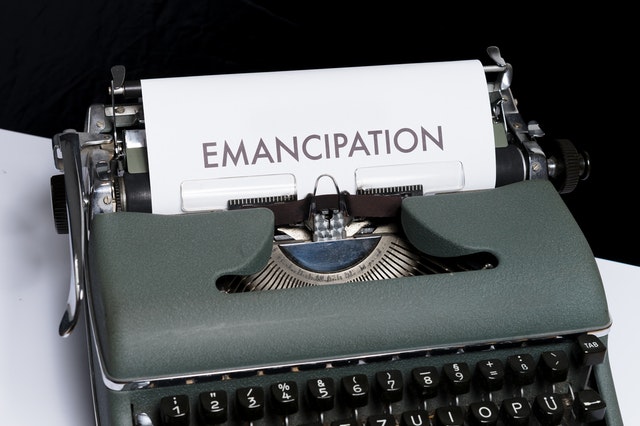The Family Court has extensive jurisdiction over many domestic matters. It is designed to resolve disagreements arising from divorce and legal separation, including provisions for the care of children.

Adoptions
Find out how to obtain adoption records, or assistance available with uncontested adoptions.

Child Custody/Child Support
Get answers to questions about child custody and child support issues.


Emancipation of a Minor
Find out how Minors (persons who are at least 16, but not yet 18) can apply for emancipation.

Representing Yourself in Family Court
This brief guide gives you some very basic information to help you understand family court proceedings. For more information, visit the Maricopa County Superior Court website or consult a lawyer.
- Proceedings
Proceedings or hearings and conferences in Family Court follow the Arizona Rules of Family Law Procedure.
In a divorce or paternity case, you may be referred to an Early Resolution Conference, Mediation, a Parenting Conference, or a Settlement Conference (sometimes called an Alternative Dispute Resolution or “ADR”). These proceedings are designed to help people reach agreement on all or some of their disputes. They generally are not done by your assigned judge.
You may have to appear before your assigned judge for a pretrial hearing. The most common pretrial hearings are a Resolution Management Conference, which helps the judge manage the case by setting deadlines and a trial date; and a Temporary Orders Hearing, at which the judge may make temporary orders to be followed until the trial.
If you do not settle all issues with the other person, there will be a trial. A trial is the single hearing where the judge will hear evidence from both people and make final decisions on your disagreements.
- Disclosure and Discovery
Both parties have an obligation to voluntarily provide certain information. Failure to disclose as required might result in penalties called sanctions, including being prevented from talking about or showing evidence that was not disclosed on time.
If you need information that has not bee provided, you may engage in discovery, such as asking for documents or requesting with a subpoena documents from people or businesses that are not parties.
- The Trial
A trial is when both parties present evidence on disputed issues. The judge will decide these issues based on the evidence given and talked about during the trial. Only evidence you bring to or talk about at the trial will be considered.
After the trial, the judge may give you a ruling right there in court or may take the case “under advisement,” which means that the judge will give you a written ruling at a later time.
The judge’s ruling may be a signed decree or judgment, which officially ends the case. If the judge chooses, the judge may decide contested issues and then require you, the other person, or both of you to submit a decree for the judge to sign based on what the judge decided.
- Preparing For The Trial
When preparing for the trial, it is very important that you read the judge’s minute entries carefully. The minute entries tell you what the judge expects of you for the trial. It may include:
(1) Giving the judge and the other person a pretrial statement that describes the issues in the case and lists your witnesses and exhibits; and
(2) Uploading copies of your exhibits to the Digital Evidence Portal.
Many judges may hold you to time limits at the trial. It is your responsibility to make sure you give all your evidence in the time allowed.
- What Happens During The Trial?
(1) The Judge will ask both parties if they have any preliminary issues to address such, and will give procedural instruction regarding how the hearing will be conducted.
(2) Both parties will have the opportunity to present an opening statement. That statement will be a summary of each parties’ position.
(3) Presentation of evidence. Evidence is generally of two kinds: Testimony and Exhibits.
When you call a witness to testify, you must ask the witness questions. A witness may only answer questions that are asked. When the person who called a witness is done with questioning, the other person may cross-examine the witness by asking additional questions.
You and the other person may testify as a witness on his or her own behalf. However, while a witness is on the stand, you and the other person may only ask questions. Arguing with a witness or commenting on the answers is not allowed.
During trial preparation, you uploaded your exhibits into Case Center, the Court’s digital evidence portal. Only those exhibits will be presented during the trial unless you are given permission to present other newly discovered things. During the trial, you will direct the Judge’s attention to the items you’ve uploaded into the digital evidence portal and ask that they be admitted into evidence, then Both parties will have the opportunity to present closing arguments. Lastly, the Court will state its findings for the record and issue a ruling, or the matter might be taken under advisement for the judge to issue a written ruling within 60 days.
- Proper Court Procedure
Although family cases are often emotional, it is important that everyone act in a calm and respectful way in court. Here are some “Do’s and Don’ts:”
- Do dress appropriately. Don’t wear hats, sunglasses, or ragged clothes.
- Do wait your turn to speak. Don’t interrupt or argue while someone else is talking.
- Do treat others with respect. Don’t curse, make faces, or engage in insulting behavior.
- Do be honest and up front with the judge. Don’t lie or try to hide things.
- Do make sure that friends and family who come with you sit quietly. They are not allowed to speak unless called to the witness stand to testify.
eFiling
The eFileAZ application is available for electronic filing in Family Court cases. For information on the eFiling system and to register and train for its use, you can visit https://www.azcourts.gov/efilinginformation/eFileAZ